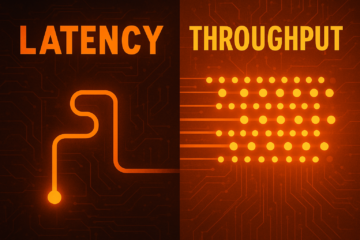Computer Science vs. Computer Engineering
This post was written entirely by ChatGPT
The fields of Computer Science (CS) and Computer Engineering (CE) are foundational to the technological world, each playing a crucial role in the advancements and innovations that define our digital age. While intertwined and often overlapping, these disciplines diverge in their core philosophies, methodologies, and applications. This article explores the distinctions between CS and CE, tracing their evolution from the past to the present, and projecting future trends, particularly in the context of machine learning and generative AI.
Historical Context
Historically, Computer Science has been concerned with the theoretical foundations of information and computation. It derives its roots from mathematics and logic, focusing on algorithms, software, and the capabilities and limits of what can be computed. The development of algorithms, data structures, and the theory of computation in the mid-20th century marked the formal genesis of CS as a separate academic discipline.
Computer Engineering, on the other hand, emerged as a blend of electrical engineering and computer science. Its focus is on the hardware and the integration of hardware with software. The early days of CE were marked by the development of microprocessors, custom circuits, and other hardware solutions designed to process specific computational tasks more efficiently.
Present Distinctions
Educational Curriculum
In academic settings, CS students dive deep into programming languages, software development, artificial intelligence, and database management. Courses emphasize problem-solving techniques, theoretical analysis, and the development of software applications.
CE students, while also learning programming, place stronger emphasis on the physical and hardware components of computing systems, such as microprocessors, digital circuits, and microcontrollers. Their coursework integrates electrical engineering with embedded system design, focusing on how software interacts with hardware.
Professional Roles and Responsibilities
Professionally, computer scientists typically work on developing software applications, improving algorithm efficiency, and solving complex computational problems. They might be found designing new programming languages or creating advanced software systems.
Computer engineers often find roles that require designing, building, and optimizing hardware systems. They work closely with hardware but also ensure that the software running on the machines is optimized for the available hardware, which includes designing processors and circuit boards as well as developing software that interacts directly with hardware.
Impact of Machine Learning and Generative AI
The recent frenzy around machine learning and generative AI has significantly blurred the lines between CS and CE, as both disciplines converge on these frontiers. Machine learning, a domain traditionally dominated by computer scientists, requires substantial hardware innovation to handle increased computational loads. This has led to a renaissance in specialized hardware designs, such as Graphics Processing Units (GPUs) and Tensor Processing Units (TPUs), which are areas where computer engineers thrive.
Generative AI also showcases the intersection of CS and CE. While computer scientists focus on algorithm development and data handling aspects, computer engineers contribute by enhancing the hardware infrastructure needed to train complex models. The synergy between software innovations and hardware advancements is crucial for pushing the boundaries of what AI can achieve.
Future Trends
Looking forward, the distinction between CS and CE might continue to blur as both fields increasingly address issues of cyber-physical systems, Internet of Things (IoT), and autonomous machines. Both disciplines will likely see a shift in focus towards sustainability in tech, efficient computing, and the ethical implications of AI.
Innovations in quantum computing could also redefine the landscape. Here, the theoretical underpinnings of CS merge with the engineering challenges of building quantum devices, demonstrating a profound collaborative need between the two fields.
Conclusion
In conclusion, while Computer Science and Computer Engineering started as distinctly separate disciplines, their paths are increasingly converging due to advances in technology such as AI and ML. Each field continues to depend on the foundational strengths of the other. In the future, as we delve deeper into uncharted technological territories, the collaboration between computer scientists and computer engineers will be pivotal in shaping the next generation of technological innovations. Both fields will continue to evolve, likely in parallel and in tandem, reflecting the dynamic nature of technology itself.
